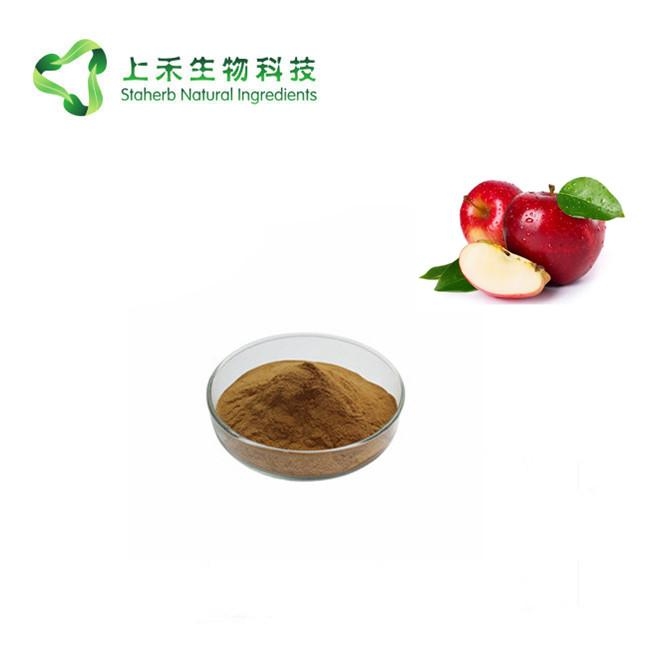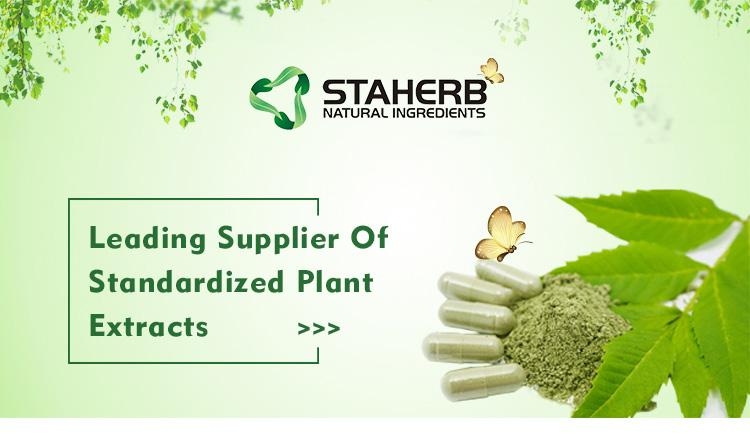
蘋果提取物
品名:蘋果提取物
拉丁名:Malus pumila Mill
顏色:棕色粉末
提取部位:果實/皮
規格: 50%-95%
檢測方式:HPLC/UV

中文名:蘋果提取物,英文名:Apple P.E,分析方法:HPLC
規格:蘋果apple polyphenol50%、70%、75%、80%;根皮甙Phlorizin40%、80%、90%、98%;根皮素Phloretin70%、80%、90%、98%
植物來源:蘋果
性狀:淺黃色 - 黃棕色粉末
藥理作用:蘋果含豐富糖類,蛋白質,脂肪,維生素C,果膠,單寧酸,有機酸以及鈣,磷, 鐵,鉀等礦物質。
排毒功效:蘋果營養價值高,有益健康,向來為人們津津樂道。除此之外它還具有排除鹽分,降低血壓,去膽固醇,刺激腸蠕動,利尿通便等作用。蘋果中的果膠可以調整人體生理機能。具有抗氧化功能
產品詳詢:13657416805
參考文獻:
- 1.
Yang DJ, Chang YY, Hsu CL, Liu CW, Wang Y, Chen YC. Protective effect of a litchi (Litchi chinensis Sonn.)-flowerwater-extract on cardiovascular health in a high-fat/cholesteroldietary hamsters. Food Chem 2010;119:1457–1464.
- 2.
Yang JY, Li Y, Wang F, Wu CF. Hepatoprotective effects of apple polyphenols on CCl4-induced acute liver damage in mice. J Agric Food Chem 2010;58:6525–6531.
- 3.
Shoji T, Akazome Y, Kanda T, Ikeda M. The toxicology and safety of apple polyphenol extract. Food Chem Toxicol 2004;42:959–967.
- 4.
Akiyama H, Sakushima J, Taniuchi S, Kanda T, Yanagida A, Kojima T, et al. Antiallergic effect of apple polyphenols on the allergic model mouse. Biol Pharm Bull 2000;23:1370–1373.
- 5.
Yanagida A, Kanda T, Tanabe M, Matsudaira F, Oliveira Cordeiro JG. Inhibitory effects of apple polyphenols and related compounds on carcinogenic factors of mutans streptococci. J Agric Food Chem 2000;48:5666–5671.
- 6.
Lee KW, Kim YJ, Kim DO, Lee HJ, Lee CY. Major phenolics in apple and their contribution to the total antioxidant capacity. J Agric Food Chem 2003;51:6516–6520.
- 7.
Jan O, Michaz W, Aneta W, Iwona W. Influence of apple puree preparation and storage on polyphenol contents and antioxidant activity. Food Chem 2008;107:1473–1484.
- 8.
Osada K, Suzuki T, Kawakami Y, Senda M, Kasai A, Sami M, et al. Dose-dependent hypocholesterolemic actions of dietary apple polyphenol in rats fed cholesterol. Lipids 2006;41:133–139.
- 9.
Lam CK, Zhang Z, Yu H, Tsang SY, Huang Y, Chen ZY. Apple polyphenols inhibit plasma CETP activity and reduce the ratio of non-HDL to HDL cholesterol. Mol Nutr Food Res 2008;52:950–958.
- 10.
Sugiyama H, Akazome Y, Shoji T, Yamaguchi A, Yasue M, Kanda T, et al. Oligomeric procyanidins in apple polyphenol are main active components for inhibition of pancreatic lipase and triglyceride absorption. J Agric Food Chem 2007;55:4604–4609.
- 11.
Borensztajn J, Rone MS, Kotlar TJ. The Inbibition in vivo of lipoprotein lipase (clearing-factor lipase) activity by Triton WR-1339. Biochem J 1976;156:539–543.
- 12.
He RR, Wang M, Wang CZ, Chen BT, Lu CN, Yao XS, et al. Protective effect of apple polyphenols against stressprovoked influenza viral infection in restraint mice. J Agric Food Chem 2011;59:3730–3737.
- 13.
Oh PS, Lim KT. Glycoprotein (90 kDa) Isolated from Opuntia ficus-indica var. saboten MAKINO lowers plasma lipid level through scavenging of intracellular radicals in Triton WR-1339-induced mice. Biol Pharm Bull 2006;29:1391–1396.
- 14.
Harnafi H, Caid HS, Bouanani NH, Aziz M, Amrani S. Hypolipemic activity of polyphenol-rich extracts from Ocimum basilicum in Triton WR-1339-induced hyperlipidemic mice. Food Chem 2008;108:205–212.
- 15.
Oh PS, Lee SJ, Lim KT. Hypolipidemic and antioxidative effects of the plant glycoprotein (36 kDa) from Rhus verniciflua stokes fruit in Triton WR-1339-induced hyperlipidemic mice. Biosci Biotechnol Biochem 2006;70:447–456.
- 16.
Gbaguidi FG, Chinetti G, Milosavljevic D, Teissier E, Chapman J, Olivecrona G, et al. Peroxisome proliferatoractivated receptor (PPAR) agonists decrease lipoprotein lipase secretion and glycated LDL uptake by human macrophages. FEBS Lett 2002;512:85–90.
- 17.
Dallinga-Thie GM, Franssen R, Mooij HL, Visser ME, Hassing HC, Peelman F, et al. The metabolism of triglyceride-rich lipoproteins revisited: new players, new insight. Atherosclerosis 2010;211:1–8.
- 18.
Staels B, Schoonjans K, Fruchart JC, Auwerx J. The effects of fibrates and thiazolidinediones on plasma triglyceride metabolism are mediated by distinct PPARs. Biochimie 1997;79:95–99.
- 19.
Staels B, Dallongeville J, Auwerx J, Schoonjans K, Leitersdorf E, Fruchart JC. Mechanism of action of fibrates on lipid and lipoprotein metabolism. Circulation 1998;98:2088–2093.
- 20.
Li SY, Chang CQ, Ma FY, Yu CL. Modulating effects of chlorogenic acid on lipids and glucose metabolism and expression of hepatic peroxisome proliferator-activated receptor-alpha in golden hamsters fed on high fat diet. Biomed Environ Sci 2009;22:122–129.